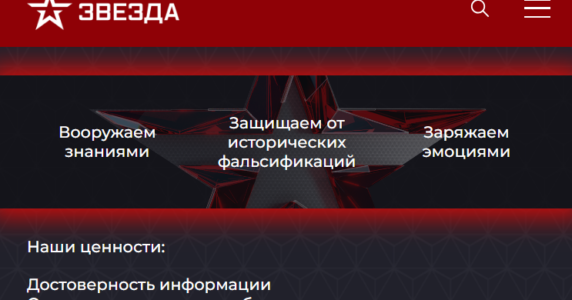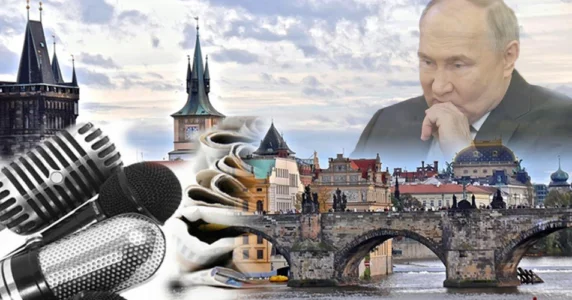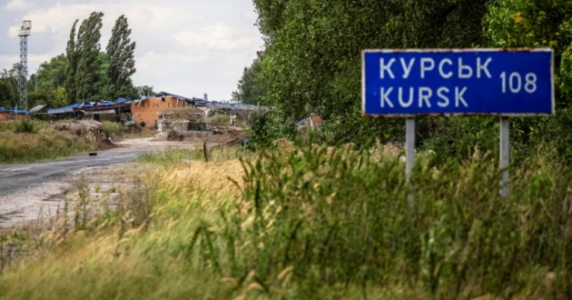Navigation and useful materials
The military coup in Niger, as well as recent similar events in neighbouring countries — Mali (2021) and Burkina Faso (2022), took place under Russian flags, anti-French slogans and caused a stormy joy of Putin’s propaganda. Allegedly, there is a “new patriotic Africa,” which is turning away from the West towards Russia.
The coup drew attention to the military and cultural expansion of Russia in Africa. It took place at the same time as the Russia-Africa Summit in St. Petersburg, where the terrorist country presented new prospects for cooperation with the countries of the black continent. In general, since 2019, Russia has begun to systematically invest in the development of its “soft power” on the continent, which was once the target for a similar expansion of the USSR.
“Black Rus should be free!” the propagandist Solovyov said on his TV show. He called for providing Niger with “everything it needs” to expel the “French invaders” from its territory. “Supply them with air defence systems. I am certain that many Nigeriens have learnt how to work with our systems. I feel that the crews are really ready. Strongly tanned people,” it is illustrative how propaganda calls for arming Africans and at the same time cannot refrain from openly racist metaphors.
It is much easier for Putin to work with dictators because of the “special relations” with the leaders of countries who came to power in their countries through coups, as was the case in Sudan, Burkina Faso, Mali, etc. In the CAR, where the Wagnerites are based, a referendum has recently been held to reset the terms of the current President Touadéra. At times, such leaders can remain on the throne for decades. An illustrative case from the recent summit in Russia: Sassou Nguesso, president of the Republic of the Congo, met with Brezhnev in May 1981 and now with Putin in July 2023.
Currently, cadets and servicemen from more than 20 African countries study at the universities of the Ministry of Defence of Russia. Their number is also planned to increase.
Let’s turn to history. The Soviet Union globally confronted the Western world, opening “fronts” across the planet. Active struggle was also waged on the African continent, where Moscow sought to dominate the natural process of decolonization. Often, Soviet “assistance” ended with brutal dictators coming to power, such as Mengistu Haile Mariam, the “Black Stalin,” who caused a real Holodomor in Ethiopia in the 1980s.
Today’s Russia is a revanchist state. Its goal is to return to the world of the past of its current leaders, mostly the generation of 70-year-olds, when “everyone was afraid of them and showed respect.” “The fact that Russia has become the number one country in the world causes a certain thrill,” says propagandist Karen Shakhnazarov. Thus, Russia continues to destroy the world order, even in Africa, because the feeling of domination and impunity gives it inspiration.
Russia is waging a colonial war against Ukraine and is trying to destroy an entire nation and its state. In communication with the West, the Kremlin justifies this by its “historical rights” and claims to spheres of influence that the USSR once had. Instead, in the non-Western world, Russian propaganda claims it opposes globalism and stands for the sovereignty of states, assures of respect for national cultures and features.
In reality, both in Ukraine and Africa, it is about overthrowing governments elected by the people, imposing puppet regimes and mass violence using militants and mercenaries. The apotheosis of propaganda was the statement by the speaker of the Russian Foreign Ministry Zakharova at the St. Petersburg Summit that Russia was fighting for the freedom of Africans in Ukraine.
READ ALSO: Africa’s True Allies Are in Kyiv, not Moscow
Russian propaganda feels confident in many countries of the African continent. In the “Bolshevik” style, it inflates the hatred of Africans towards Europe and the United States. Russia’s metanarrative echoes the Soviet one: “Moscow will help you do away with the West in order to walk together towards a bright future.”
For example, for propaganda in Africa, the Russians released short cartoons that were distributed through social networks. In one of them, “Macron’s demons” in the form of skeletons with patches of the French flag say that Africa should belong to them, while the defender with the patch of Mali’s flag shoots back at these skeletons. When he runs out of ammunition, a Wagnerite with a Russian tricolour comes to the rescue, and together they repel the attack.
In other cartoons, France is portrayed as a voracious rat or a menacing snake. However, a Russian mercenary kills it with a “Wagner sledgehammer” and saves Africa from Western colonialism.

The law of Russia “On Veterans” mentions 12 armed conflicts that took place with the participation of the USSR in Africa. Here is a list of them:
- Warfare in Ethiopia (1977-1990)
- Warfare in Mozambique (1984-1988)
- Warfare in Mozambique (1975-1979)
- Warfare in Mozambique (1967-1969)
- Warfare in Angola (1975-1992)
- Warfare in Egypt (1974-1975)
- Warfare in Egypt (1973-1974)
- Warfare in Egypt (1969-1972)
- Warfare in Egypt (1968)
- Warfare in Egypt (1967)
- Warfare in Egypt (1962-1963)
- Warfare in Algeria (1962-1964)
When the situation changed, and the USSR ceased to fight the West (and soon ceased to exist altogether), Moscow lost any interest in Africa for a long time. This only proves once again that the Soviet empire sought not civilizational progress for the oppressed, but its own spheres of influence and global domination.
Today, Russia is luring Africans with the prospects of cooperation with Rosatom to address the pressing issue of electrification, as well as the fight against infectious diseases, infrastructure, education, and information projects. Roscosmos promised African countries joint space exploration.
Currently, Russia “exports” political corruption to Africa. Cases of interference in the elections of Russian political technologists were recorded. Thus, BBC journalists conducted an investigation and found that during the presidential elections in Madagascar in 2018, at least six candidates received money from the “mysterious Russians.” Some were sure that Russian political strategists supported the winner of the election, Andry Rajoelina.
Russia also “sells” the image of a strong state that challenges the West to Africa, although Prigozhin’s mutiny has shown that all this power has an “inherent flaw” because the regime in Moscow rests on an openly criminal system of relations and the personalized power of several people.
Interestingly, Moscow plans to influence the education system of African countries. It is planned to open branches of Russian universities in Africa. “An agreement was signed at the St. Petersburg Mining University to create a Russian-African consortium of technical universities ‘Mineral Resources of Africa’ for joint training of specialists for the mineral resource complex,” Putin said at the forum. It is also planned to establish joint schools, for which “methodological materials are developed based on the synthesis of Russian and African national educational programmes.”
Putin also said that 28 African countries launched “a project to create open education centres for training teachers and educators of preschools, primary and secondary schools. To this end, it is planned to significantly increase the enrolment of African students in Russian pedagogical universities.”
Earlier, it was reported that Russian-language education centres are planned to open this year in 28 countries, including Algeria, Angola, Ghana, Egypt, Zimbabwe, Madagascar, Mozambique, the Republic of the Congo, Tunisia, Uganda, Ethiopia, and South Africa. Thus, Putinism wants to teach Africans to hate Europe and the United States since childhood.
According to Putin, “the quota for the education of Africans, at the expense of the federal budget, has increased 2.5 times in 3 years and will amount to 4,700 people next year.”
At the Summit, Putin also proposed “to work towards the creation of a common information space between Russia and Africa; within its framework, unbiased and objective information about events taking place in the world will be broadcast to Russian and African audiences.”
To this end, it is planned to cooperate on “content exchange, organization of educational courses for workers and students of media, conducting experimental events.” In addition, “the leading Russian media are to be opened in Africa — TASS, Russia Today, RT, VGTRK, Rossiyskaya Gazeta,” stated the head of Russia. An arrest warrant against him was issued by the International Criminal Court.
Back in April 2013, The New York Times published an article about how “pro-Russian content with a distorted version of the war in Ukraine and the promotion of Russia’s interests in Africa is gaining an audience on the continent.”
Journalists wrote that foreign broadcasting channels of RT, after their ban in Europe, are moving their offices to African countries. In particular, RT opened an “English-speaking African centre” in Johannesburg, South Africa.
Maxime Audinet, an expert at the Institute for Strategic Research at the Military School, stated at the end of 2022 that Russia was seriously challenging France in the information field in Africa. The EU bans have pushed Russian propaganda to look for new platforms in the Sahel countries (a region in Africa), for example, Sputnik France became #SputnikAfrique.
The Russians not only promote their information resources, but also enter the already existing African media through the signing of contracts. For example, Afrique Média, a television channel in Cameroon that reaches millions of people, signed a partnership with RT in 2023.
“Sputnik and RT have signed partnership agreements with at least a dozen African news agencies,” NYT quoted Maxime Audinet in April 2023.
Following the summit in St. Petersburg, the head of RT Simonyan reported on the positive feedback from visits by the heads of TV channels from Senegal, Uganda, CAR, Nigeria, Ghana, Kenya, Tanzania, and Mali to Russia. In particular, Hassan Diombélé, CEO of the Office of Radio and Television of Mali (ORTM), stated that his company signed a protocol of cooperation with RT as well.
The Russian Orthodox Church is also expanding into Africa. At the end of 2021, the Russian Orthodox Church, in violation of Orthodox canons, formed its dioceses on the canonical territory of the Orthodox Patriarchate of Alexandria, explaining this by its response to the “Ukrainian split” in Orthodoxy through the granting of autocephaly to the Orthodox Church of Ukraine. According to the head of the Russian Orthodox Church, Kirill (Gundyaev), over a year and a half, the exarchate of Africa opened more than 200 parishes in 25 African countries. The Russian Orthodox Church also tells Africans about colonialism and “bad Western values” that former colonialists allegedly want to spread in Africa.
After Prigozhin’s mutiny, The Economist published an article about the use of Wagner PMC as a force component to develop “Russian Africa.” It covers the opinion of analysts on the fact that there are about 5,000 Russians from Wagner in Africa (most of them in Mali and the CAR) and provides an infographic of Russian influence.

However, analysts note that Africa, despite all the efforts of Russian propaganda, does not support Moscow at crucial moments. The recent case was the UN vote on Ukraine, when Russia was supported only by Eritrea, Mali, and the CAR. The majority abstained, and some countries opposed Russia.
One cannot but notice a significant, drastic reduction in the representative level of African countries at the last summit. This year, the leaders of 17 African states flew to Russia; at the last such summit, there were leaders of 43 countries. South Africa refused to welcome Putin at the BRICS summit. The African Union, at the summit in St. Petersburg, clearly stated that “the grain deal must be restored for the benefit of all humanity, especially Africans.”
READ ALSO: Myths and Narratives Russia Uses to Devalue Grain Initiative
We can’t help but mention another issue. Russians are a deeply racist society that treats other peoples with distrust and contempt.
The propagandist Solovyov resorted to openly racist attacks not so long ago, calling the White House press secretary Karine Jean-Pierre “chunga-changa” because of the black colour of her skin. The vice-speaker of the State Duma decided to emphasize her origin, falsely claiming that she “came from Africa.”
Russia is simply unable to offer Africa an alternative to colonialism, due to the fact that it itself seeks to emulate the colonizers — those of the 19th century, when the Russian Empire was not invited to divide the African continent between European empires.
Centre for Strategic Communication and Information Security
If you have found a spelling error, please, notify us by selecting that text and pressing Ctrl+Enter.


